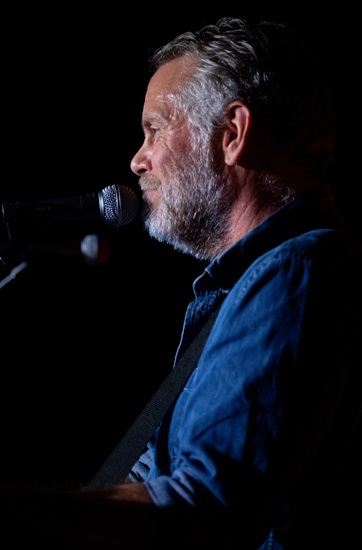
Rod Picott’s a songwriting craftsman, even to the point of using the imagery of woodworking tools to illustrate his songwriting process. We reviewed his latest album ‘Starlight Tour’ in October of this year and it reinforces his reputation as a chronicler of rust-belt America who tells his stories of everyday blue-collar people with economy and precision. He’s also a nice guy, so we were more than happy when he decided to contribute to this year’s High Fives. He’s also a discerning reader, so his selection is five books that made an impact on him this year.
‘August’ by Callan Wink
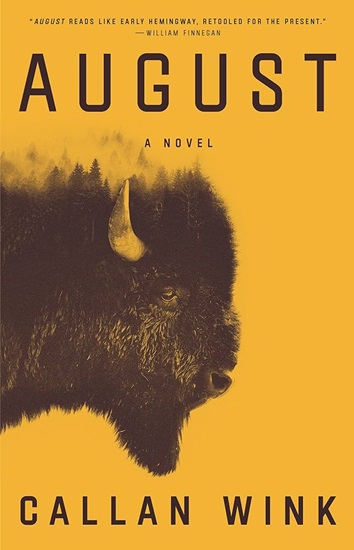
The book is a small marvel about the coming of age of a young man in Montana. The region’s politics and culture are deftly woven into this narrative. Mostly written in short declarative sentences – the comparisons to Hemingway are not overstated – particularly in the long sections of brilliantly executed dialogue.
‘Every Man for Himself And God Against All’ by Werner Herzog
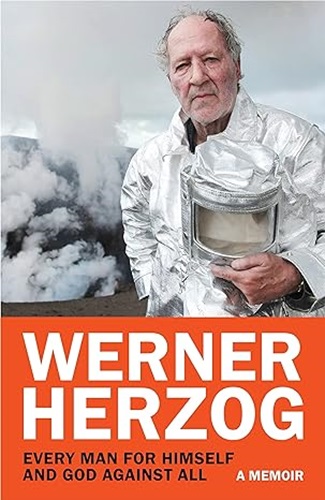
The fingerprints and voice of Herzog come roaring off the page. It’s nearly impossible to read this memoir without the laconic dark-edged sound of Werner Herzog’s baritone rasping in your head. Like Herzog the director, this book is a ramble of memory and fever dream. The man’s memory is astonishing. A true polymath, Herzog can speak on nearly anything you can imagine – from forgotten pharaohs to his own directorial blunders.
‘Mayflies’ by Andrew O’Hagan
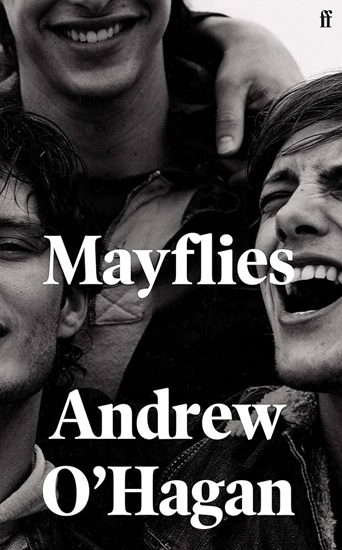
This touching and poignant read is quite simply a beauty. The first half of the book follows a group of post-punk fans-friends on a trek from small-town Scotland to a music festival in Manchester England. The charismatic Tully and the less confident James share a friendship that goes beyond film and music tastes and runs deeper than the adolescent chest thumping of youth. The writing is so sharp and filled with detail you almost feel like you are on the journey yourself. Halfway through the book, the reader is catapulted years ahead and the adult Tully and James come into focus. It’s an unexpected masterstroke.
‘Lean On Pete’ by Willy Vlautin
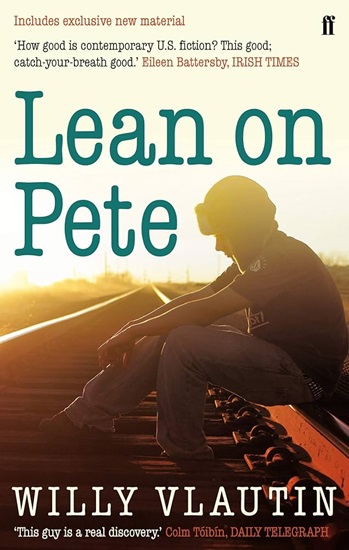
Like most of Vlautin’s work ‘Lean On Pete’ is a slender novel. The story of a teenage boy’s search for a sense of home is poignant and quietly powerful. Charley’s relationship to a faltering racehorse as he attempts to make a dangerous trek across state lines to his only known relative will leave you gutted. Vlautin somehow manages the not so simple task of making you root for the underdog as his life continues to grow darker and darker. He does this without manipulating the reader and it makes the heartbreak even more eloquent.
‘Such Kindness’ by Andre Dubus III
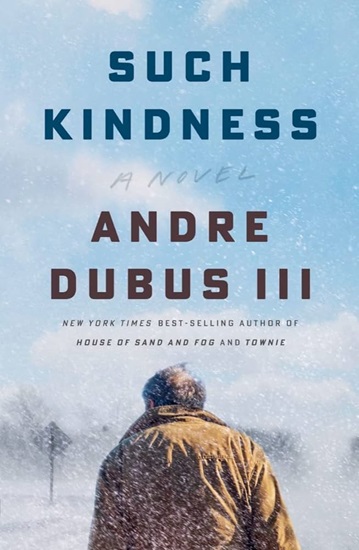
‘Such Kindness’ spoke directly to this reader. Tom Lowe has had a tragic accident and is severed from his identity as a construction worker. He is in unyielding suffering, addicted to painkillers and is slowly descending into a version of himself he doesn’t recognize. The question that runs through this compassionate novel: Who are you, if everything you’ve built your life and selfhood on is taken from you? Such Kindness is a beautiful and slowly unwinding book. It is a series of small moments that add up to something philosophical and grand. Dubus is a masterful writer.
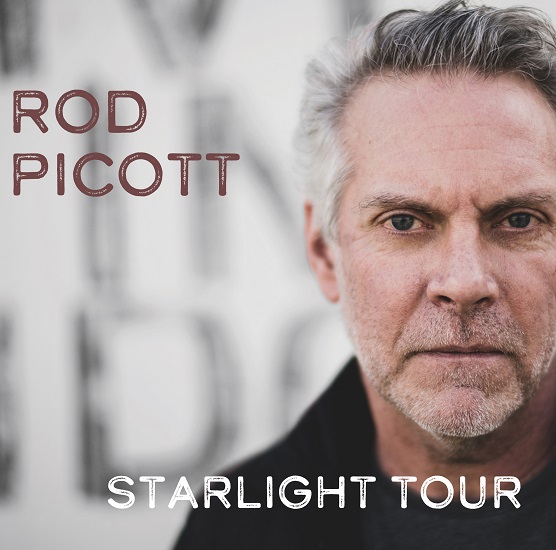
Rod Picott’s a craftsman, working on songs in the same way as carpenter works with wood and a mason works with stone. When he talks about the songs in his notes on the album, he uses images of chisels and carving knives to illustrate the process of knocking a song into shape. If there’s a better songwriting chronicler of rust-belt blue-collar America than Rod Picott, I haven’t heard them; he’s totally authentic and he incorporates his own experiences into his work. By his own admission he’s finding it more difficult to create songs these days after ten albums but he’s now working with other songwriters to create classic songs; the magic is still most definitely there and ‘Starlight Tour’ is probably the most complete Rod Picott album I’ve heard.
The discipline required to complete the album in just five studio days with producer Neilson Hubbard is evident in the arrangement for all ten songs, whether it’s the full-band sound of the blue-collar anthem ‘Digging Ditches’ and moody nostalgic rock of ‘Wasteland’ or the two stripped-back songs that close the album, ‘Pelican Bay’ telling the story of Vietnam veteran and his happiness followed by tragedy and the intimations of mortality in the closing song ‘It’s Time to Let Go of Your Dreams’ with a close-mic vocal backed by acoustic guitar and a very understated muted trumpet solo.
There are references you come to expect on a Rod Picott album; boxing’s one of them. His take on the tragic life of Sonny Liston from 2022’s ‘Paper Hearts and Broken Arrows’ is a classic. Here he builds ‘A Puncher’s Chance’ around a boxing metaphor which he applies to a romantic pursuit; the last thing to go is a boxer’s strength, so there’s always a chance of landing a lucky punch if you’re willing to take enough punishment along the way.
Rod’s songs are firmly grounded in real life; his style is very much audio verité and two of the co-writes demonstrate this in different ways. ‘Homecoming Queen’, written with Amy Speace, tells a familiar story with a more personal twist, while the Nick Nace co-write is an exploration of tales of the Saskatoon Police dumping drunk indigenous people outside the city in winter to die of hypothermia. There’s a terrible economy and clarity in the line “His crime was being, drunk, brown and poor” set against the sparse arrangement of ‘Starlight Tour’ that stops you in your tracks.
If you’ve heard any of Rod’s previous work, you’ll recognise some of the themes here; his interest in boxing, looking through the rear-view at small-town America and his love of its inhabitants. The change in tone with ‘Starlight Tour’ and, to a certain extent, its predecessor ‘Paper Hearts and Broken Arrows’ is that they‘re looking forwards at a road that’s much shorter than the road already travelled. It’s a difficult realisation to come to terms with and it adds a maturity to the album that promotes it from great Rod Picott album to classic singer-songwriter album.
‘Starlight Tour’ is released in the UK on Friday October 20th on Welding Rod Records.
Here’s the lyric video from the album’s opening song, ‘Next Man in Line’:
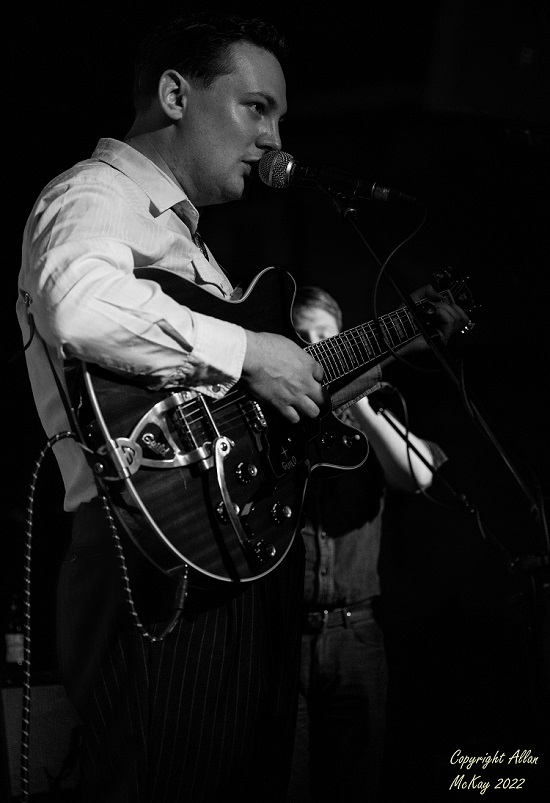
This probably needs a bit of explanation, mainly about the reason why Music Riot exists. What we’re about is promoting music that’s worth listening to but probably isn’t going to get too much mainstream attention. We know that we can’t make a difference for Springsteen or Dylan (not that either of needs any help) but we just might persuade a few people to listen to a Rob Heron album. The five favourites we’ve chosen are all albums that we’ve reviewed this year, so don’t expect to see anything mainstream there. What they have in common is that they’re all good (we don’t believe in negative reviews – there’s enough negativity without us adding to it) and they all deserve to be heard. In no particular order.
St Paul’s Boulevard – Michael McDermott
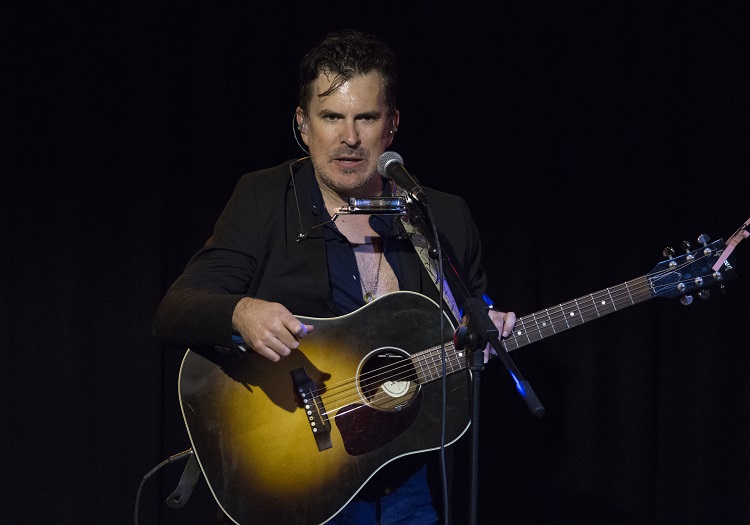
Michael’s been a big favourite at Riot Towers since The Westies ‘Six on the Out’ in 2016 and with good reason. He’s a great songwriter steeped in the tradition of American popular music, whatever the genre. He can also persuade great players to work with him (Will Kimbrough for example) on his albums. ‘St Paul’s Boulevard’ is an album that looks back with gritty realism at Michael’s difficult past, and forward to a positive with clear-eyed, multi-hued optimism. The title track’s a wonderful piece of work, harking back to Michael’s early Chicago days and describing one of those places we probably all have that were important to us because of the people we met there. And the great lyric: “None of the heroes around here have capes, they’re just talking in taverns and on fire escapes”.
‘Paper Hearts and Broken Arrows’ – Rod Picott
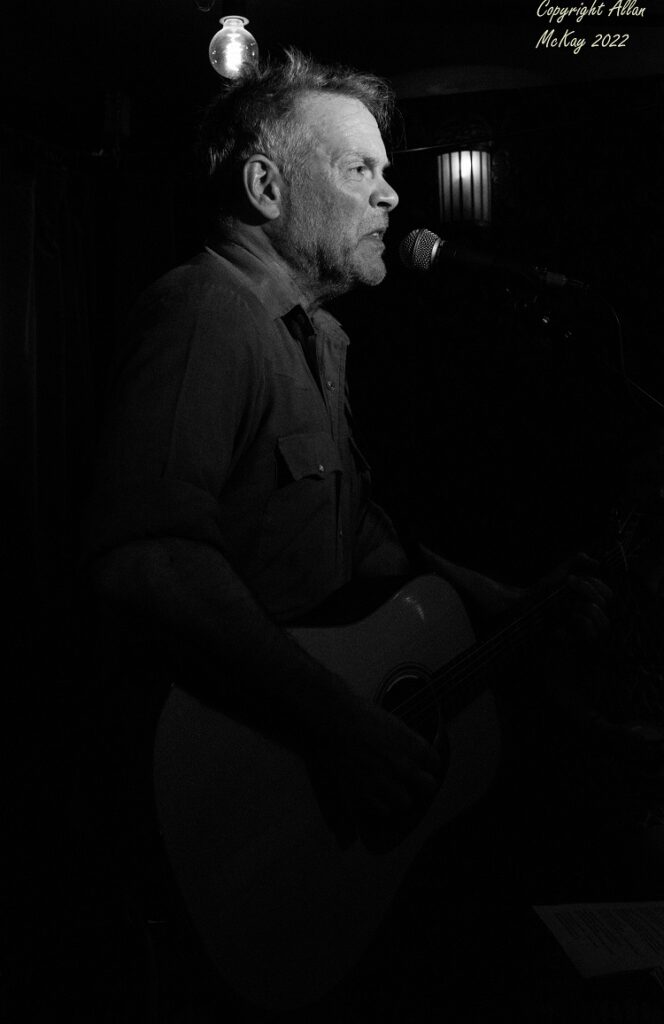
Like Michael McDermott, Rod is another Music Riot favourite. I should also say they’re both great people as well. ‘Paper Hearts and Broken Arrows’ is a potent mixture of songs that range from the very personal through social comment to the historical. ‘Revenuer’ has an interesting history; it’s based on a Taylor Brown novel about moonshine runners, but when Rod mentioned this to Taylor, he fessed up to stealing the idea from Steve Earle’s ‘Copperhead Road’. The other song that really caught our attention was ‘Sonny Liston’, Rod’s exploration of the complicated life of the heavyweight boxer. Let’s finish on a great lyric again: “Two big fists pumping like pistons, nobody punched like Sonny Liston”.
Every Seed we Plant’ – Alice DiMicele
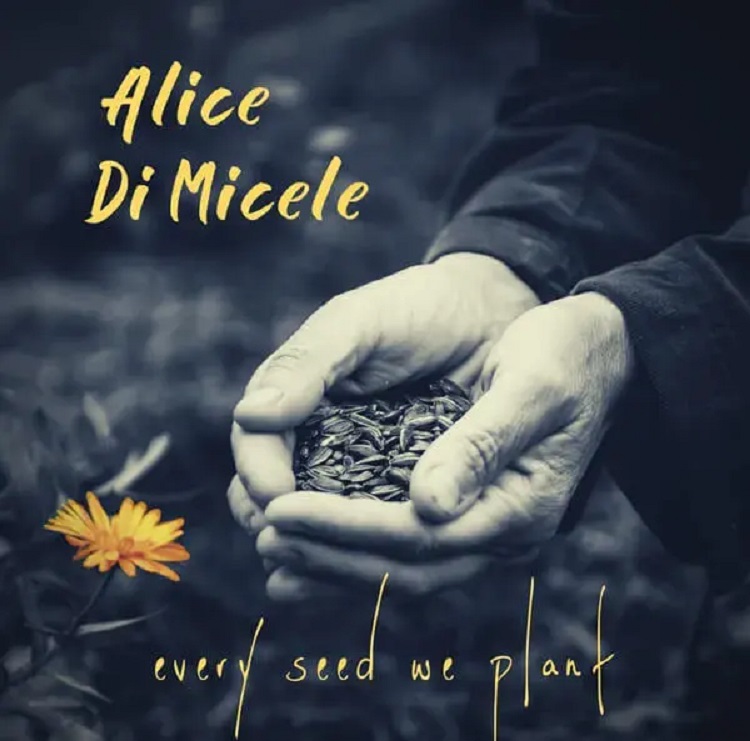
Alice’s sixteenth album is one of the many we reviewed in 2022 that’s influenced by the pandemic that we somehow managed to live through. The songs on the album have a huge emotional range, from raging anger to a heart-warming dog story. ‘Dispatch’ is a very angry song about the killing of a retired black Marine in his own home in White Plains, New York after mistakenly calling in a Life Aid medical alarm – it’s harrowing. ‘Dear Elaine’ is at the opposite end of the spectrum; it’s a tale of the healing relationship built between a woman and her dog. The album takes a journey from historic raw rage to a positive look into our future. Alice’s vocals need a mention as well; she has a huge dynamic range from a sweet whisper to a rock growl. There’s a bit of everything here.
‘Leo’ – Pete Gow
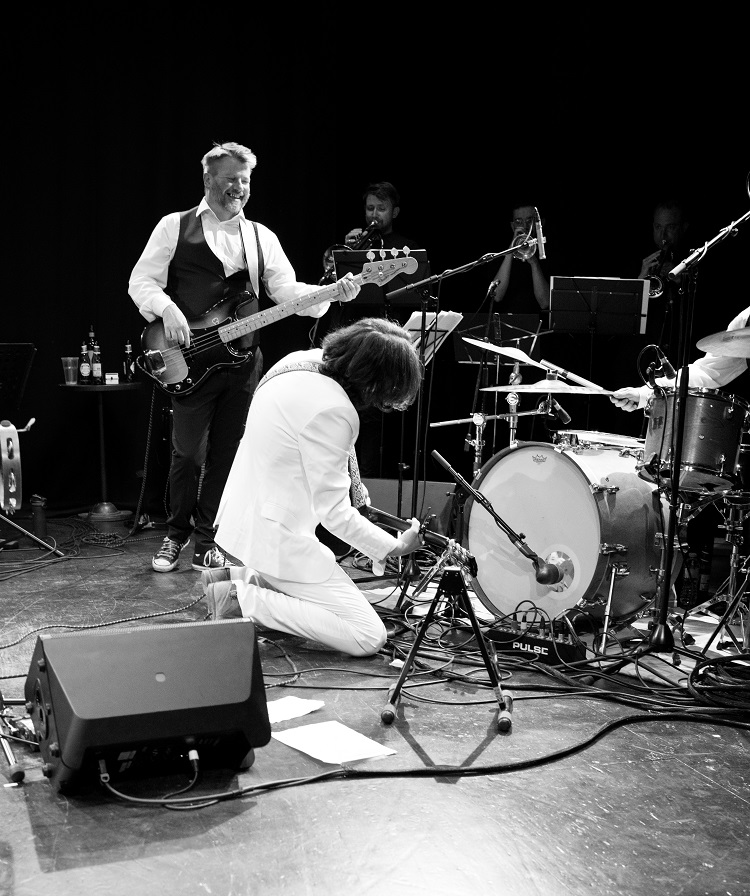
Pete’s a very interesting songwriter. He’s a former member of Case Hardin (with the brilliant Jim Maving) and, as a Scottish songwriter living in and writing about London, there’s an inevitable comparison with the late Gerry Rafferty. ‘Leo’ is a full-blooded production featuring a rock band, string section and a horn section with arrangements by Joe Bennett creating some really interesting textures to back up Pete’s fascinating narratives. If you want two highlights, ‘Side III of London Calling’ paints a post-gig picture of a seedy musician on the pull, while ‘Leonard’s Bar’ is the classic ‘one last job’ petty criminal story. The album hangs together really well and the songs sound great in a live setting. And Pete’s a nice guy as well.
‘The Party’s Over’ – Rob Heron & the Teapad Orchestra
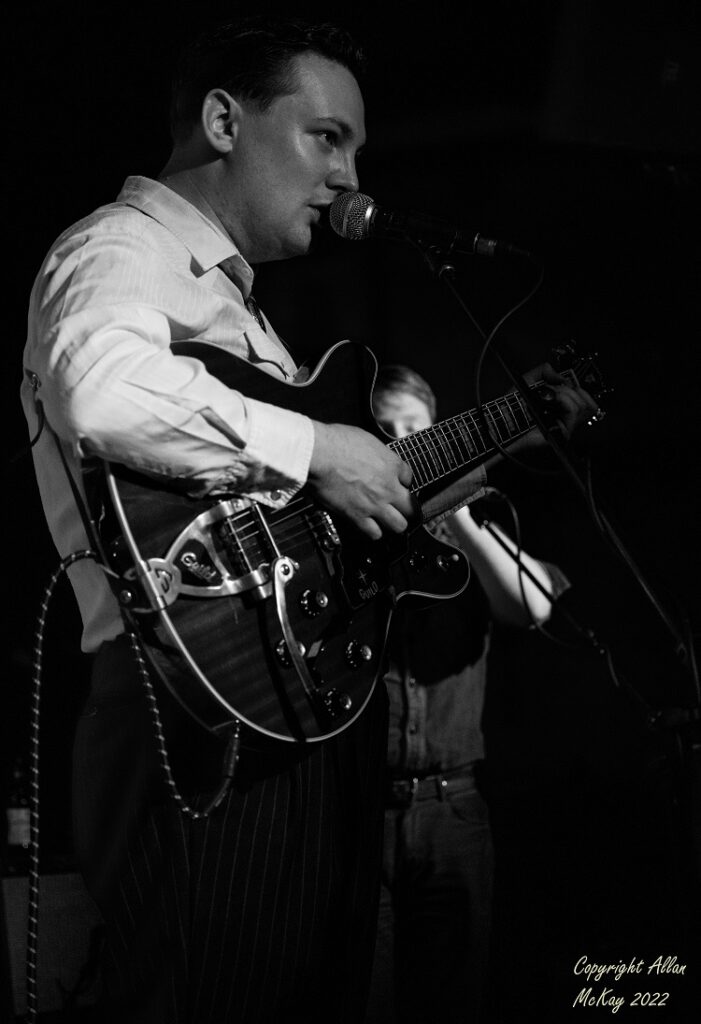
So let’s get this over with first, Rob’s a great guy as well. He read the Music Riot review of this album just before going on stage at the London gig at The Lexington and made a couple of references to it on stage. The album continues Rob’s tradition of eclectic musical influences and even a few political references as well. ‘Snip Snap Snout’ is nonsense zydeco (which is exactly what Rob intended it to be), ‘The Horse That You Rode In On’ channels the Frankie Laine classic ‘Rawhide’ and the light-hearted ‘The Doctor Told Me’ pulls in the House of the Black Gardenia horns to create a New Orleans funeral band feel. I did say it was eclectic. And, like everyone else mentioned here, you really should see Rob & the Teapad Orchestra live – they’re phenomenal.
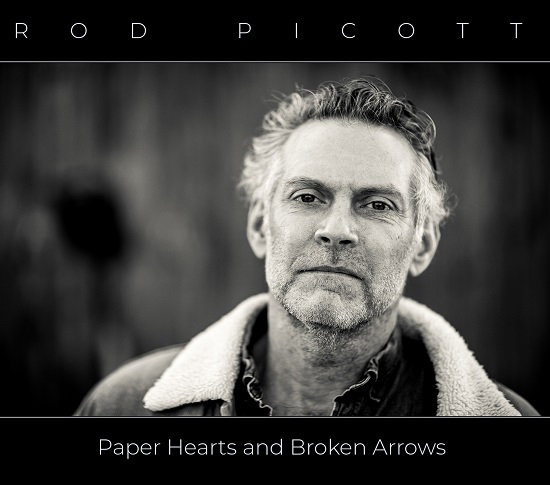
Every so often, an album comes along that isn’t just a great collection of songs played beautifully; an album that pushes a few personal buttons and maybe touches a few raw nerves as well. Rod Picott’s ‘Paper Hearts and Broken Arrows’ is one of those albums that creates a very personal connection. Maybe it’s an East Coast thing between Maine in the USA and Fife in Scotland; you don’t need to look too hard to see the parallels and ‘Washington County’ paints a picture of an area where genteel resorts sit side by side with poverty-stricken former industrial towns and villages. They’re three thousand miles apart, but it’s the same experience.
Just taking a step to one side for a moment, as music has moved into the digital realm, so have some of the ways of getting it out there and letting people know about it. It’s not so long since review copies arrived as CDs (or vinyl if you want go back a bit further) with an A4 press release, through the letterbox. Now they arrive in your inbox and an artist or PR team can include much more material with no extra distribution costs. Which means that artwork and credits, additional photos and lyric sheets are fairly common now and there’s a relatively recent addition of the artist’s ‘track-by-track’ notes. Reviewers should rely more on their ears and instincts than press releases, but you can sometimes pick up a useful insight into the artist’s vision. In the case of Rod Picott, there’s always something worth reading when he puts fingers to keyboard.
The story behind ‘Valentine’s Day’ on this album is a perfect example. It’s a very honest song, painfully so, that’s stripped back to the raw basics of acoustic guitar and cracked vocal. Rod’s notes tell us that the original recording was a full band version that sounded “wonderful – and completely wrong”, like “an Eagles track with a guy that can’t really sing”; the arrangement was too perfect and in Rod’s words again, “for me, perfect is almost always wrong”. Producer Neilson Hubbard liked the stripped-back version and three takes later it was in the can.
There are a couple of strands that run through the album, Rod’s acceptance of a spell of single life that surfaces in the opening song ‘Lover’, ‘Valentine’s Day’ and ‘Mona Lisa’ where the loneliness exists for creatives even inside a relationship, and the autobiographical songs ‘Lost in the South’ and ‘Mark of Your Father’ which both reference his background and his father with ‘Lost in the South’ using his father as a jumping-off point for Rod’s early experiences in the South, while ‘Mark of Your Father’ explores the complicated nature of father-son relationships using Marvin Gaye as an example of how bad things can really get.
And then there are a few songs taking their inspiration from other areas. The dark and menacing ‘Revenuer’, with its dirty guitars and screaming slide solo is inspired by a Taylor Brown novel and explores that thin line between right and wrong when your choices are limited and times are hard. ‘Frankie Lee’ is an outlaw song where the main character always accepts his ultimate fate as the electric chair and, like a lot of Rod’s more stark songs, wouldn’t sound out of place on The Boss’s ‘Nebraska’ (and I know I’ve made that link before).
Rod’s a fan of boxing and ‘Sonny Liston’ is a song that pulls at some of the threads running through a lot of Rod’s work. Sonny Liston was a complex character, torn between the world he came from and the dubious world of professional boxing and gangland connections that he joined without ever gaining the respect of either. The man who took his world title, Cassius Clay/Muhammad Ali is better remembered now, but the Sonny Liston story is full of loose ends, links to organised crime, drugs, sudden death and astonishing sporting prowess. Rod weaves all of these strands into a powerful and economic narrative with a simple alliterative and assonant chorus: “Two big fists pumping like pistons, nobody punched like Sonny Liston”.
Fourteen albums in, Rod Picott is still pushing at the boundaries of his craft, still looking for ways to create songs that mean something, to him and to his audience. Let’s not use the word ”perfect” to describe ‘Paper Heart and Broken Arrows”; let’s go with an outstanding collection of beautifully-crafted songs delivered by outstanding musicians and a singer whose voice cracks with power and emotion. OK with you?
‘Paper Hearts and Broken Arrows’ is released in the UK on Friday June 10on Welding Rod Records.
No videos yet for songs on the album, but here’s a link to a live performance of the fabulous ‘Rust Belt Fields’:
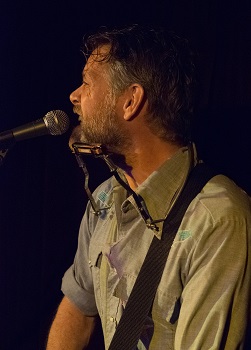
It’s that time of year again; time for the ninth edition of the Music Riot High Fives. It’s been another difficult year for everyone involved in making music but that hasn’t stopped the flow of creative juices. Apart from the positive takeaways Rod describes below, he also released a great album in September of this year and had plans to tour the UK until travel restrictions brought it to a grinding halt. Let’s hope it happens in 2022. In the meantime, here’s Rod’s thoughtful look back at some of the positives to come from 2021.

The Dad Reports
With the passing of my mother in April of 2020 I started writing out my nightly conversations with my father. He is eighty-one and an authentic northern New England character. I write only his part of the conversation and write it out phonetically so that readers can hear his voice as they read. Here is one of The Dad Reports:
The Dad Report:
“So, it was pretty cold and cloudy but they said it was gonna warm up so I waited for my walk. Bandit stays behind me till I get ‘bout halfway ‘round the bird path then Christ he takes off and when he sees the house he’s runnin’ like crazy and he beats me back and he’s waitin’ at the doah. So I says, Jesus I gotta vacuum this place. So I vacuumed the whole house, top to bottom. Got all that damn cat hair up of the sofa. Guess what? The cat started sleeping with me. I get up the othah day and I says “what the hell is that?” It was the cat. Sleeping right up against me. Been doing it every night since. I don’t care long as it don’t do that pawing. It’s funny. I go up, she follows me up. I go down she follows me down. Bandit’s not scratching like he was so I guess that spray worked. I had to do a load of whites and a load of dahks. So I loaded up the dahks first. Got them in the dryer then I says I’m gonna take a ride to Williamsport then I come out on sixteen down by four corners, went back through Milo. I says I’m gonna stop and get a sausage egg and cheese on a English muffin. It was pretty good and the best thing was there was only ‘bout foah people in Tradewinds and I was the only one at Dunkin’ Donuts. Then I went home and switched the laundry and haint done nothin’ since really, but I was glad to get the cat hair offah the couch. No games tonight. Green Bay won last night. I love you. I’ll talk to you tomorrow. You have a good night…”

The Strand Theatre This is a beautifully restored theatre in Lakewood NJ. I’ve played there many times over the years but this year was particularly special. Aside from online shows, I hadn’t played a show in eighteen months. I usually play between one and two hundred shows each year, so these last eighteen months have upended a career I’ve scratched and clawed for. Playing for an audience is the most alive I feel as I walk through my time on this rock. The Strand show was my re-entry after a very long time. The audience was magic. I nervously worked through the first song, heard that applause, threw the lyric sheet on the floor and I was gone – transported to that magical place that can exist between a performer and audience when the air is right. There is nothing like it that I’ve experienced. I’ll always remember this show. It was pure magic for nearly two hours. We were all one.

Listeners And so, what to do with my time as Covid closed the world down? All of my shows were gutted in one single day. Weeks of planning dissipated into thin air. After wringing my hands for a few weeks, I knew I needed to do something, but what that thing would be was outside my vision. Then an epiphany. What would I like to have from my own favorite artists? The answer came quick. I would love for Patty Griffin, Steve Earle, Bruce Springsteen or Jason Isbell to sit down and record a handful of songs just for me. I’d like them to talk to me as they recorded, to feel that profound connection and feel it in my bones – to know that this was my album. What an amazing thing that would be? So that’s what I did. I had no idea how on point I was. I anticipated maybe twenty or thirty folks to be interested enough. It was an expensive price tag because each recording had to be performed one at a time, mastered, printed onto a CD then mailed out – all by my own hand. By the end of the first week, I had more orders than I had time. It was a glorious experience. Most of the folks I recorded for, I at least knew a bit, so it was incredibly fun as well as very hard work. It was a project that kept my head above water and simultaneously kept that personal connection to my listeners. There were glitches and great performances. One day my eighty-year-old father started his chainsaw right outside the window. It all went onto the recording. If I screwed up a song, I simply played it again. Each person received whatever happened while I was recording – all on one long track. My listeners saved me.
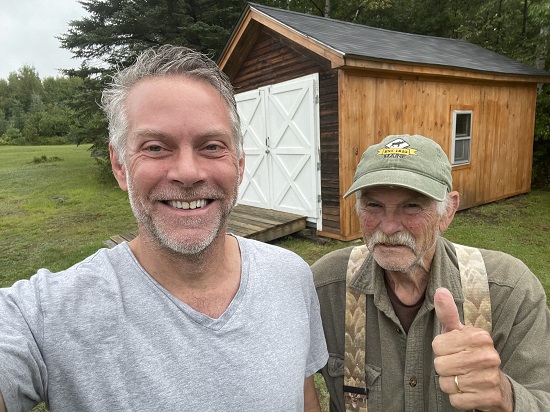
My Father We were not particularly close when I was a child. I was a bit of a misfit, uninterested in his world of hunting and fishing, football and dirty jokes. I was a reader, drawn to the arts, incredibly shy and uncomfortable in my own skin. He was a man’s man; easy with cars, tools and the things of the masculine world. My world was my inner world. My father’s world was in his hands and the things he did. I lived inside my head. My mother was a notoriously bad gift giver. She gave me a giant plywood rabbit as a wedding gift and few years ago a stack of used heavy metal guitar magazines for Christmas. It made no difference to me and in fact I found it comical. It was astounding how far from the bullseye she could land with a gift. She’d give a diabetic a cake. When she passed on there was no one at the ready to help my father through the maze of legal issues that inevitably come with death and so I stepped in. I drove twenty-four hours straight to get to him in rural Maine. Then I methodically rounded up the issues to resolve and went through them one by one. I don’t wish this task on anyone. At one point I realized my father needed me. It wasn’t just a matter of helping him. He was utterly lost without my mother and needed me to take care of these things and the universe shifted. My mother’s final gift to me – was my father. Now, I split my time between flashy Nashville Tennessee and dire Brownville Maine. We walk every day. We watch football. He repeats the weather report the weatherman just reported two minutes earlier and I listen. Everyone needs someone to listen.
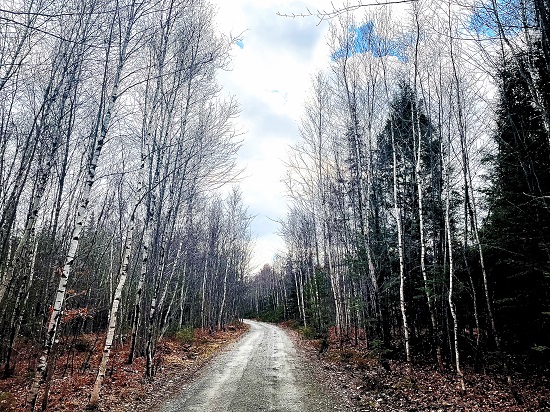
The Vaccine We all waited…and waited. I am in the firm grasp of middle age but it took time for my date of birth to be eligible. The roll out of the vaccine was not perfect, but in hindsight it was an impressive effort. I know this issue is rife with controversy. Covid continues its cruel march forward after we all hoped the vaccine would take it out at the knees and we would return to normal. It was not to be – as my own cancelled U.K. tour informed me. It was simply too soon and there were too many variables. The protocols seemed to change daily. I will, however, never forget the feeling of getting that first injection. Hope. It was hope that rang through my head. With the second dose an enormous relief and sense of gratitude overwhelmed me for all the people it took to make it happen. From the doctors and scientists to the volunteers who stuck arms all day long, day after day, to the old man directing traffic at the Nashville site, it was pure gratitude. We’re not there yet. But there is hope. Somewhere out there someone is working sixteen hours a day for that silver bullet. And we hope.
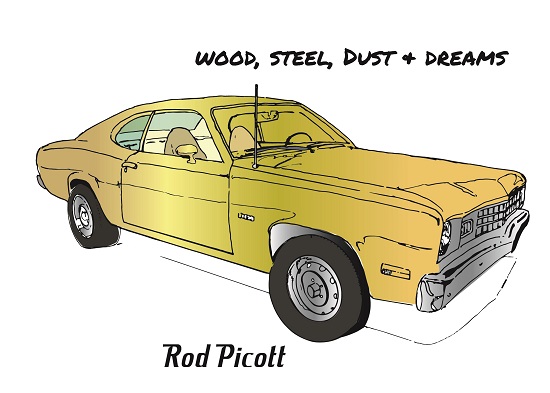
It’s difficult to review a Rod Picott album without mentioning Raymond Carver. There we go, that’s out of the way now, we don’t have to go back to that, valid as it is. “Wood, Steel, Dust + Dreams” is in the category of ‘Great idea; will it actually work?’ (spoiler alert – it will). The great idea was to take the twenty-five songs that Rod had co-written with childhood buddy and long-time collaborator Slaid Cleaves and rework them as a record of their collaboration. And there’s another interesting idea; the two-disc collection will only be available on CD. No, downloads, no streaming; you buy the album directly from Rod and no-one else takes a slice of it. Or, even better, you could go out and catch him on his UK tour (details below) and put some money in his hand personally in exchange for two CDs. It’s a nice way to get your music fix.
The title of the album sums things up neatly (although ‘rust’ could have featured as well). This album is packed with American blue-collar songs; we’re not taking Manhattan or Berlin, we’re dealing with people doing back-breaking manual labour in the rust belt and busting out at the weekend, drinking, racing cars or gambling and you can feel the authenticity running through every song. Running to twenty-five songs over two CDs, it’s a lot of songs. As our Northern reporter, Steve Jenner, used to say about “Sandinista”, you need a packed lunch for that one. There’s no filler; they’re all great songs and the list of musicians on the album is very impressive – Will Kimbrough, Matt Mauch, Lex Price and Neilson Hubbard are all on board, with Hubbard producing and there’s even a guest harmony from Slaid Cleaves. The production is very light touch, creating ambient soundscapes that pull the attention to the songs and Rod’s ‘groaning wound of a voice’ (his own words) and the raw power of the songs.
It’s subjective and a bit tricky to pick out favourites, but here are a few of my personal highlights. “Rust Belt Fields” tells the story the America sold when corporations discovered cheaper labour in Mexico and China and the impact it had on the workers and towns left marooned as the jobs evaporated; it’s despair and the knowledge that there’s no recognition for hard work. Two songs sitting side by side on CD Two are perfect demonstrations of the power and subtlety of the songwriting; “Drunken Barber’s Hand” is a menacing view of a malign force guiding the world, while “Primer Gray” is a perfect example of a song working on two levels. It’s a straightforward story about someone escaping from the grind by racing his car at the weekend. All the attention is paid to the engine and the body work and paint job is irrelevant because it doesn’t make the car faster. On another level, it’s about the music business (and humanity in general); all the glitz in the world can’t hide a hollow centre.
If you want a masterclass in songwriting and delivery, you don’t need to go any further than “Wood, Steel, Dust + Dreams”. Simple stories about real people delivered with the minimum of fuss and maximum of heart.
“Wood, Steel, Dust + Dreams” is out now on Welding Rod Records.
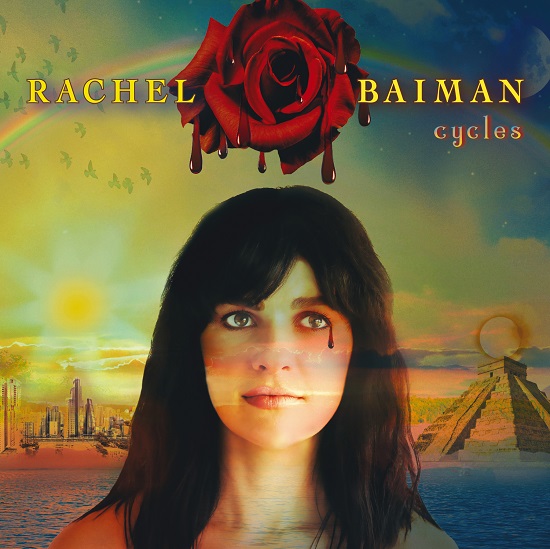
It’s all worthwhile when you hear an album as good as this. Rachel Baiman has created a collection of ten songs with a range of Americana musical stylings that is intensely personal while also referencing current social and political issues in the USA (although the album was recorded in Australia). The other thing you’ll notice about the songs is that whether personal or political, they mainly address issues that directly affect women (Rachel herself, her sister, her sister-in-law and her grandmother). They aren’t all happy stories, but that’s the whole point; the various cycles of life have good and bad phases. The mid-tempo title song, with its distinctive layered vocal is a tragic and yet uplifting story of two generations of women from the same extended family binding together in mutual support to deal with a still-birth and then a difficult birth; it’s deeply moving.
The two overtly political songs sit side by side on the album. “Rust Belt Fields” is Rachel’s take on a Rod Picott/Slaid Cleaves song; the song’s ten years old, but still sounds relevant. The minimalist one-bar percussion loop creates the relentless feel of the automobile production line, lost forever to more cost-effective (exploitative) overseas territories. The song is a fatalistic acceptance of the corrosion of the Steel Belt to the Rust Belt and the unmourned loss of the jobs this entailed: ‘No-one remembers your name just for working hard’. “Wyoming Wildflowers” is a Rachel Baiman/Olivia Hally song that uses the theme of diverse colours in nature to skewer white supremacist views. The lyrics are set against a gentle country-rock arrangement and the message is emphasized by the repetition of the final two lines.
There are ten superb examples of the songwriter’s art on “Cycles” including another that pressed all of my buttons, “No Good Time for Dying”, which deals with watching someone you love suffer the indignities of a protracted death; it’s not pretty, but it’s the end of the cycle that starts with the opening song. The album’s final song, “The Distance”, tackles the way we habitually deal with recurring life situations in the same way because it’s easier than thinking about another way.
The Rachel Baiman/Olivia Hally musical arrangements and production on “Cycles” are deceptively simple while featuring ambient instrumental sounds and layers of vocals that always allow the songs plenty of room to breathe. There are hints at times of the vocal stylings of Neil Young, Emmylou Harris, and even Rickie Lee Jones (on “No Good Time for Dying”) but the bottom line is very much Rachel Baiman, teasing out themes of family, work versus relationships, politics and even the “I Will Survive” sentiment of “Hope it Hurts”. This album is complex, sometimes painful and very rewarding.
“Cycles” is released in the UK on Signature Sounds Recordings (SIG-CD-2129 / SIG-LP-7038) on Friday June 11th. Here’s the video to “Joke’s On Me”:
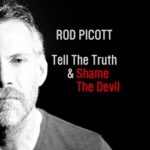 A new Rod Picott album is always something to look forward to. He’s an exceptional songwriter and his voice is a very effective vehicle for delivering those songs. It’s a voice that’s frayed around the edges and at times crackles with emotion. On “Tell the Truth and Shame the Devil”, Rod has stripped his delivery back to just guitar, harmonica and voice; oh, and the songs. Just to give this some context, the album was recorded after a health scare Rod had over the last winter (although not all of the songs are contemporary) and has a stark, sometimes brooding, feel mingled, unsurprisingly, with intimations of mortality, including the opening song “Ghost”, a brutally honest assessment of Rod’s current situation, and that of many others in similar positions. Confessional, hard-hitting singer-songwriter isn’t a particularly lucrative career path these days.
A new Rod Picott album is always something to look forward to. He’s an exceptional songwriter and his voice is a very effective vehicle for delivering those songs. It’s a voice that’s frayed around the edges and at times crackles with emotion. On “Tell the Truth and Shame the Devil”, Rod has stripped his delivery back to just guitar, harmonica and voice; oh, and the songs. Just to give this some context, the album was recorded after a health scare Rod had over the last winter (although not all of the songs are contemporary) and has a stark, sometimes brooding, feel mingled, unsurprisingly, with intimations of mortality, including the opening song “Ghost”, a brutally honest assessment of Rod’s current situation, and that of many others in similar positions. Confessional, hard-hitting singer-songwriter isn’t a particularly lucrative career path these days.
Rod recorded the entire album alone, without an engineer, before handing the tapes over to Neilson Hubbard (you might remember him if you’re a MusicRiot regular) for final production. If you want a benchmark, the finished article has the same feel as The Boss’s “Nebraska” and has similar lyrical themes of family, poverty and alienation. The result of this method is that the songs are stripped to their very essence with no distractions, emphasising the stories they have to tell and, as always with Rod Picott, they’re striking and memorable stories.
As a writer, Rod likes a metaphor; the murder ballad “Too Much Rain” uses a barren landscape to represent the failure of a marriage to blossom, while “Bailing” uses the idea of bailing literally and metaphorically, referring back to a flooded childhood cellar as a metaphor for the futility of activity that only serves to keep us in the same place. Rod also likes to bring a bit of autobiography into the mix; “Mark” is the story of an unexplained teenage suicide, while “Spartan Hotel” is that bar in any town where anything goes if you can pay the price. And don’t forget the social comment; “A Beautiful Light” aims straight the heart of those songwriters who try to glamourise the drudgery of blue-collar life as a means of social control.
This is the third Rod Picott album we’ve reviewed here and they’re consistently powerful pieces of work blending punchy stories of small-time America with haunting melodies in a voice that is both emotive and vulnerable. It’s probably the most personal of his recent albums and well worth a listen.
“Tell the Truth and Shame the Devil” is out now Welding Rod Records and Rod will be touring the UK in October.
 As ever; songs, not singles. These songs are all from albums that we’ve reviewed this year (that’s Stone Foundation ruled out again – sorry guys). There’s something else, apart from greatness, that links all these choices; they’re not the only songs from the albums they feature on that could have made this list. The albums are all wonderful pieces of work taken as a whole, but they all feature at least two standout tracks that would have been seen as singles in a different musical era. There were difficult choices but ultimately it had to be whittled down to five songs. In no particular order, here are Allan’s favourite five songs of the year; the songs that made his heart soar or made him cry, but definitely made him hit the repeat button.
As ever; songs, not singles. These songs are all from albums that we’ve reviewed this year (that’s Stone Foundation ruled out again – sorry guys). There’s something else, apart from greatness, that links all these choices; they’re not the only songs from the albums they feature on that could have made this list. The albums are all wonderful pieces of work taken as a whole, but they all feature at least two standout tracks that would have been seen as singles in a different musical era. There were difficult choices but ultimately it had to be whittled down to five songs. In no particular order, here are Allan’s favourite five songs of the year; the songs that made his heart soar or made him cry, but definitely made him hit the repeat button.
Just to be contrary, it’s actually the first song on the album, ”Southern Wind”, which was a collaboration with Will Kimbrough. One of the things Dean and Will bonded over was their love of Ronnie Lane, whose influence is all over this one. Having heard it live a few times, where it tends to appear towards the end of the set, confirms the power of the song and allows Dean to riff on repeated choruses by throwing in lines from, for example, “Ooh La La”. It’s fun and it’s memorable; if you don’t love this, you’ve got icicles for ventricles.
 “Love in Wartime” – Birds of Chicago
“Love in Wartime” – Birds of Chicago
Absolutely gorgeous. This clocks in at about the six minute mark but you just want it to keep going. It’s one of those that seduces you in with a gentle intro then builds and builds to the first chorus. And by that time, you’re hooked; you’re there for the duration. Maybe there’s a nostalgia thing there; the feel, the chord progressions are a lot like classic mid-seventies era Bob Seger. The melody’s hummable, the harmonies are superb and it’s hugely uplifting. I dare you not to be moved by this.
 “Out from Under” – Michael McDermott
“Out from Under” – Michael McDermott
This is a song where you just have to accept the Bruce Springsteen comparison because this is a stadium rocker in the mould of “Born to Run”. It’s a monstrous ‘wall of sound’ production driving along by pounding, relentless floor toms and a huge full band arrangement. In the context of the album, it’s the song that represents the start of the upward turn in Michael’s rehabilitation and the uplifting lyrical message is carried along on the tide of a widescreen musical setting. Taken out of the context of the album, it’s a song that FM radio in the States would have been all over in the 80s – not just a powerhouse arrangement, a potent message as well.
 “Son of an Immigrant” – Gerry Spehar
“Son of an Immigrant” – Gerry Spehar
A perfect example of the song that leads you in a certain direction before pulling the rug from under you and twisting the point of the narrative. It’s not just an example of a clever narrative trick; like the rest of the album, this is a powerful commentary on the current state of the USA, and its current leader. The song has a very clear message; if you go back far enough almost everyone’s an immigrant in the land of the free. Like “Out from Under”, it sits perfectly within the context of the album without needing that context to shine as a great song.
 “The Shape of You” – Rod Picott
“The Shape of You” – Rod Picott
Sometimes a song just needs to find the point in your life where it fits. This one happened for me on the Tube on the way back from a gig at Green Note. I’d already heard it a few times but this time it suddenly hit home. It’s about the realisation that someone has become a part of you. In this case because that person has gone, but I guess the image works if they’re still around. The song opens with the image in the title, then develops that image. It’s a really simple idea but beautifully effective. The arrangement’s sparse, with mainly acoustic guitar and vocal with some very subtle Will Kimbrough guitar atmospherics just lurking in the background. Delicate and gorgeous.
There are many other songs that could have been on this list; there’s so much incredible music out there, but these were the ones that were buzzing around my consciousness when I put this together. Have a listen, and I hope you enjoy.
 Allan is a huge fan of Rod Picott. He loves the last two albums, “Fortune” and “Out Past the Wires”, he’s seen him live and was gutted to miss Rod’s latest appearance in London in the spring of 2018. Rod can sing and play with the best but, beyond anything else, he’s a storyteller; the characters in “Out Past the Wires” will be appearing in a volume of short stories in the near future. So it’s absolutely no surprise that Rod’s High Fives for 2018 are literary picks. He’s also very thorough, so he provided all of the cover artwork to use in this piece.
Allan is a huge fan of Rod Picott. He loves the last two albums, “Fortune” and “Out Past the Wires”, he’s seen him live and was gutted to miss Rod’s latest appearance in London in the spring of 2018. Rod can sing and play with the best but, beyond anything else, he’s a storyteller; the characters in “Out Past the Wires” will be appearing in a volume of short stories in the near future. So it’s absolutely no surprise that Rod’s High Fives for 2018 are literary picks. He’s also very thorough, so he provided all of the cover artwork to use in this piece.
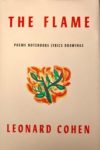 “The Flame” – Leonard Cohen
“The Flame” – Leonard Cohen
This is Cohen’s final piece of work and in fact he died before finishing. “The Flame” is a loose collection of poems, drawings and lyrics from his later albums. Most of the drawings are of Leonard himself with his aged and jowly face surrounded by small sometimes mystical phrases. The book is revelatory in showcasing the familiar syllabic repetition in much of Leonard Cohen’s work. It’s surprising to see the rhythmic patterns emerge over and over as they bring the reader to a sort of trancelike state. The familiar themes are all here. Love, loss, sex, death, aging and the mysterious relationship Cohen had to life itself. “The Flame” is a wonderful book and an intimate look inside one of the great artistic minds of the last fifty years.
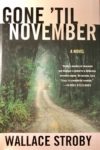 “Gone ’Til November” – Wallace Stroby
“Gone ’Til November” – Wallace Stroby
This noirish crime fiction novel grabs you from the beginning and Stroby masterfully drags the reader along into a fast-paced mystery that never lets up. This is not the kind of fiction I’m usually drawn to but the “Gone ’Til November” characters are so vivid and the story so compelling that I couldn’t put the book down. The plot unfolds much like a great film and is just as cinematic. Simply – great crime fiction worthy of Elmore Leonard comparisons.
 Substitute – Nicholson Baker
Substitute – Nicholson Baker
The genius of Nicholson Baker can’t be overstated. “Substitute” is a 719-page memoir of Baker’s tenure as a substitute teacher in the public school system of the state of Maine. Baker does something in his writing that is absolutely unique. He writes as a person’s mind works without any nod to plot and without any hint of manipulation. It is a wild and strangely compelling trick that keeps you wondering where his words will go next. There are untamed swings of thought that keep you on your toes the entire time. “Substitute” is basically every thought Baker had during his 28 days as an on-call teacher. Baker’s observations are so sharp and his empathy so present that this project is an incredibly moving journey through what should be incredibly pedestrian territory. In lesser hands this book would never work. A stunner.
 Paris Trout – Pete Dexter
Paris Trout – Pete Dexter
This novel is straight up my alley – dark southern gothic filled with vivid intense characters and rich brilliant prose. “Paris Trout” is simultaneously dark, violent and comic and the novel goes places you do not see coming. The main character himself is a racist, wife-abusing storekeeper in the dreamy small southern town, Cotton Point, Georgia. Dexter reveals our common flawed humanity through the townspeople’s reaction to a tragic incident brought on by Trout. Such vicious narrative requires a deft hand and Dexter never leaves the reader in doubt as he drags you into deeper and deeper water.
 Trampoline – Robert Gipe
Trampoline – Robert Gipe
This illustrated novel is a work of absolute genius. The narrative is so vivid that I can recall the story as if I have seen a film. That’s saying something. The book follows the life of wry, restless fifteen-year-old outsider Dawn Jewell. Woven into her story is a larger narrative that addresses the brutal nature of strip mining in her small Appalachian Kentucky town. Gipe’s own loose, scratchy inked illustrations are a marvel of economy and power. The drawings of Dawn are often accompanied by a few carefully chosen words that reveal her inner mind and the conflict therein. Your heart will break for Dawn as she navigates her small world and the inevitable collisions that come with her finding her way to some kind of peace inside the chaos around her. This book is a game-changer we seldom receive in fiction.


 “The Last Song” – Dean Owens
“The Last Song” – Dean Owens